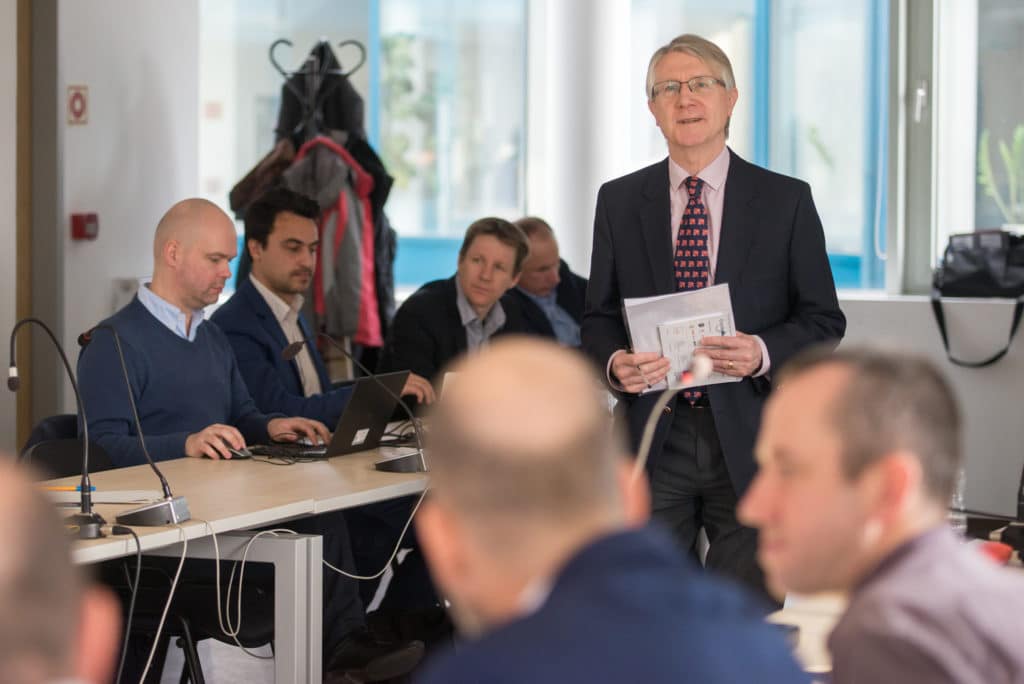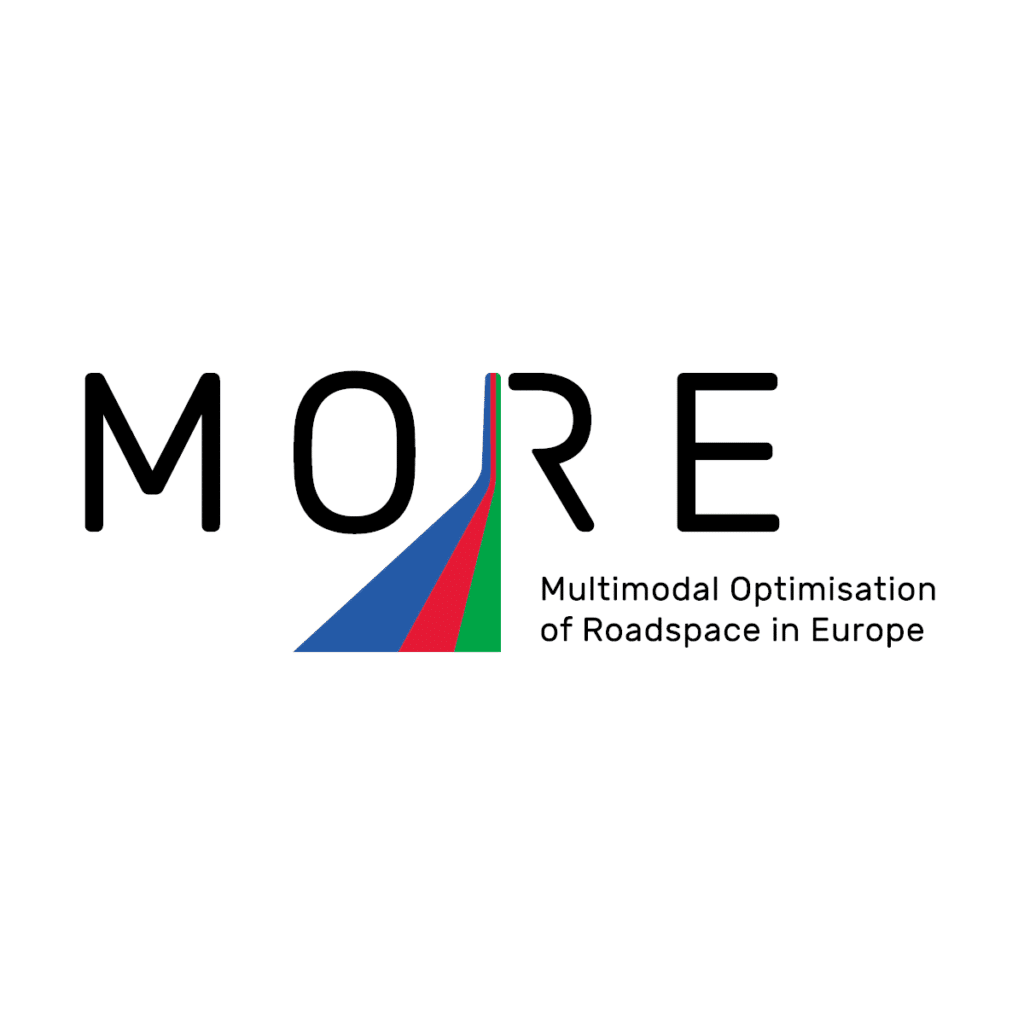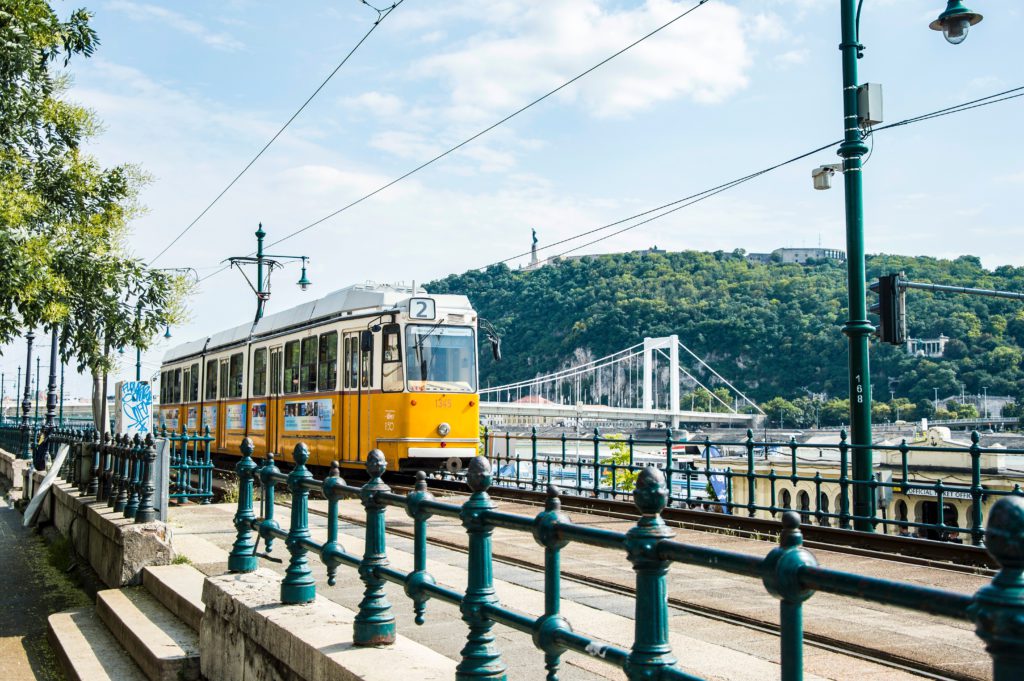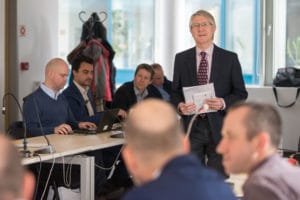Second MORE TEN-T Corridor Workshop takes place in Budapest
The second workshop of the series of TEN-T Corridor workshops organised by the project MORE took place in Budapest in the afternoon of the 25th of February 2020. In the morning, participants of the workshop were guided on a site-visit by members of BKK (Centre of Budapest Transport) to the Kelenfold Station, the major intermodal hub of the city, with railway station, and metro, tram, local and regional bus terminus and P+R with 1.000 parking spots.
The aim of the workshop was to stimulate fruitful discussion between MORE pilot cities, project partners and external cities on the topic of an effective integration of the interface between urban mobility planning (i.e. more efficient use of roadspace) and the TEN-T network (i.e. inclusion of the functional urban area around the city and incorporation within the EU ecosystem).
After an introduction on the MORE project by the Scientific Coordinator professor Peter Jones of the University College of London, the discussion focused on the main elements of the EU policy on the so called Trans-European Transport Network. Cities received information on the possibility to participate to the revision process for the new TEN-T guidelines, due in 2023, and on the different funding instruments available for cities on TEN-T topics. Project partner ECF (European Cyclists’ Federation) also presented the – sometimes problematic – interaction between TEN-T network and cycling and walking infrastructure.
The workshop was completed by the contribution of four representative of cities that have been invited to share their successful experiences on different aspects:
- Bologna presented its SUMP at metropolitan-city level, a first in Italy, which represents an example of integration of different urban plans (logistics, cycling mobility, urban traffic general plan) and of how EU-funded projects have contributed to their definition;
- Vienna brought the example of a local project that aims to define roadspace typologies, adopting a more critical and radical approach to roadspace analysis; the objective of this categorization is to described not the status quo, but the desired future for roadspace;
- Ljubljana showcased the SUMP of the Ljubljana Urban Region, by highlighting its medium-long term objectives, the multilevel coordination needed for its definition, its stakeholder engagement process, and its impact on TEN-T network infrastructure (both road and rail);
- Sofia provided an overview of its Vision Sofia 2050, an initiative that aims at bringing together national and municipal strategies with regards to city developments. A focus was put on the need of aligning objectives and timelines between national and municipal planning; this leads to problems especially regarding projects affecting TEN-T corridors, which take long time for implementation, but should ideally be more flexible in terms of their impact on the city.
The event was concluded with the presentation by Paul Curtis of Vectos on the results of the project CREATE, which aimed to support cities at identifying measures that contributed to reduce car modal share, and with the presentation of the Budapest MORE pilot project, which helped external participants to receive further insights on the concrete fieldwork aimed to reallocation of roadspace that has been undertaken within the project.
The added value of the event was proved by the high level of engagement of participants to the debate and by the fruitful links between MORE pilot cities and external cities, which were established during the workshop. The third workshop of the MORE TEN-T Corridor series will take place in Constanta in September 2020, in conjunction with the annual MORE General Assembly. Stay tuned!




